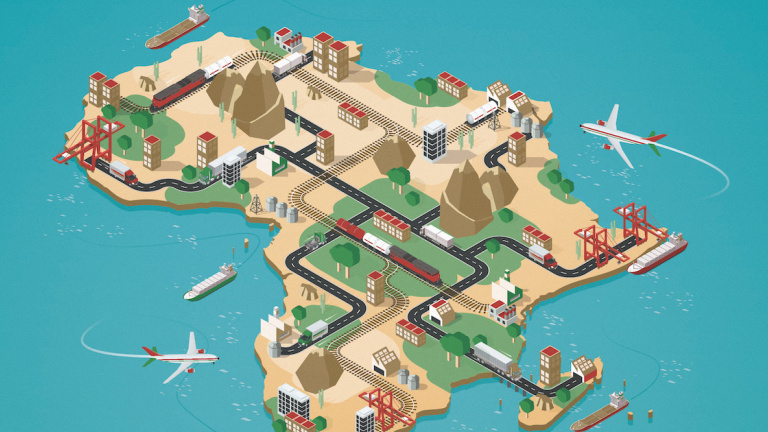
The AfCFTA: From agreement to impact - Editorial
This issue of Great Insights presents various perspectives from Africa and Europe on the AfCFTA’s significance, what needs to be done to ensure it generates benefits for African businesses and citizens and how to ensure such gains are equitably distributed.
The establishment of the African Continental Free Trade Area (AfCFTA) is an impressive political achievement, but it needs to be backed up with action to make sure that Africa’s businesses and citizens actually benefit from it. While the July 1st start date for trading under the AfCFTA now looks like it may be delayed due to the COVID-19 pandemic, the economic boost the AfCFTA is meant to provide has become even more critical given the devastating socio-economic impact COVID-19 will likely have across Africa. By promoting economic growth and diversification the AfCFTA could make African economies more resilient to such shocks in the future.
Against this sombre backdrop, this issue of Great Insights presents various perspectives from Africa and Europe on the AfCFTA’s significance, what needs to be done to ensure it generates benefits for African businesses and citizens and how to ensure such gains are equitably distributed.
The AfCFTA holds immense economic and job-creating potential, notes African Union Commissioner, Albert Muchanga, before describing ongoing efforts to finalise the AfCFTA. For European Commissioner for Trade, Phil Hogan, supporting the AfCFTA is a cornerstone of the European Union’s new strategy to develop stronger partnerships with Africa. Gerhard Erasmus, meanwhile, questions whether African states are ready for such partnerships, especially given that the AfCFTA does not create supranational institutions akin to the European Union (EU).
With regard to the AfCFTA’s central focus on boosting intra-African trade, Leila Baghdadi and Amal Medini show that the AfCFTA could unlock increased exports from Tunisia to the rest of the continent, thereby demonstrating the potential for African countries to increase their African trade.
But the AfCFTA will only promote intra-African trade if governments actually implement it. Nick Charalambides describes how compliance mechanisms can support AfCFTA implementation. One such mechanism is the AfCFTA Non-Tariff Barriers (NTB) Mechanism, which Christian Knebel explains will facilitate intra-African trade by making it easier for traders to report NTBs and for officials to monitor and resolve them. This mechanism expands on similar mechanisms at the regional economic community (REC) level, illustrating Amanda Bissong’s argument that RECs such as the Economic Community of West African States (ECOWAS) will continue to play an important role as ‘building blocks’ of the AfCFTA.
Efforts are also needed to ensure an equitable distribution of AfCFTA benefits. Faizel Ismail argues for a ‘developmental regionalism’ approach to ensure that all State Parties benefit from AfCFTA implementation. Focusing on the gendered impacts, Nadira Bayat stresses the need for a ‘business unusual’ approach to ensure the AfCFTA advances gender equality in Africa. Finally, Anesu Gamanya argues for greater provision of trade finance to help smaller African businesses take advantage of opportunities created by the AfCFTA.
Even with COVID-19 dominating policymakers’ attention, regional integration remains important for Africa. The insights presented in this issue show how the AfCFTA can foster economic benefits for Africa, something that may be even more urgently needed once the pandemic is over.
Guest editors
Sean Woolfrey
Policy Officer, African Institutions and Regional Dynamics Programme, ECDPM
Bruce Byiers
Head of African Institutions and Regional Dynamics Programme, ECDPM
Read the full magazine issue








